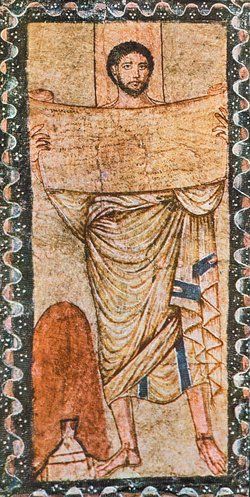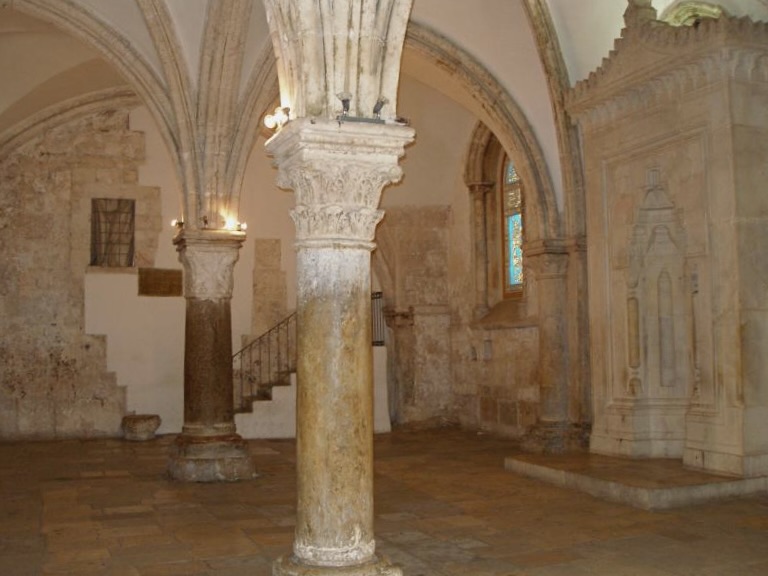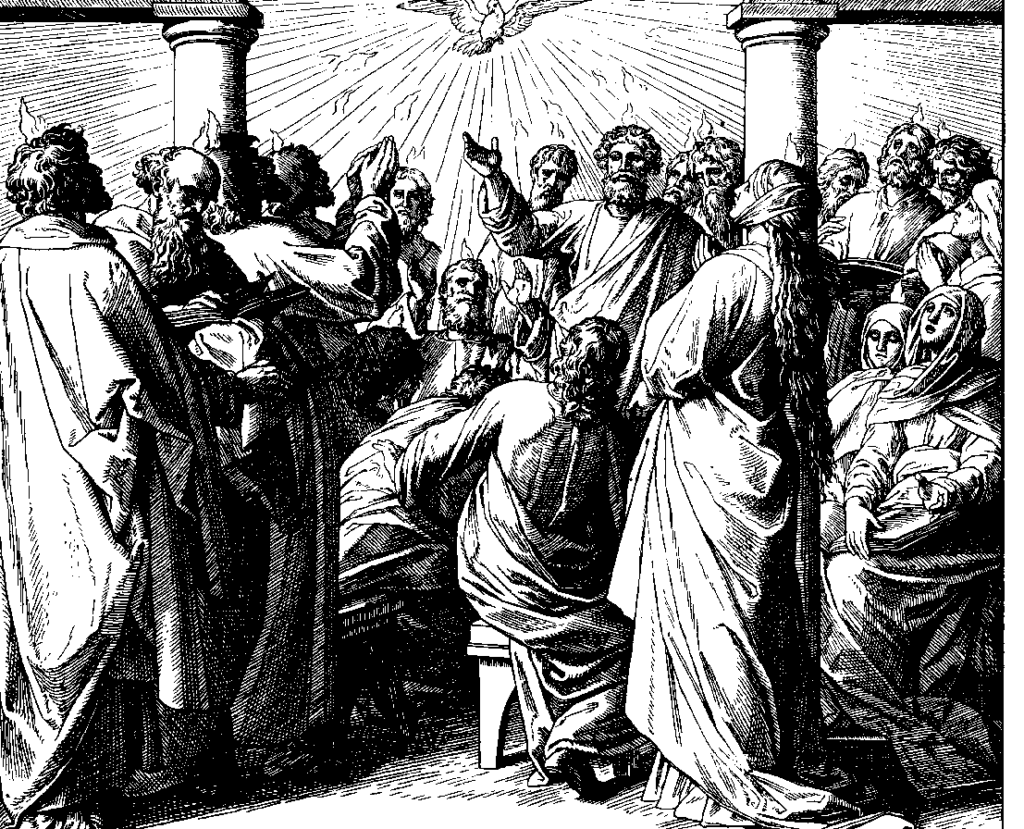
The Water Gate, Prophecy, and Pentecost
By: Shelley Neese, Coordinator, American Christian Leaders for Israel (ACLI)
What does the water gate in Nehemiah have to do with prophecy? And does it connect somehow to Pentecost in the New Testament?
To answer that question, let’s start with Malachi, who is widely considered the last literary prophet of the Old Testament because his book concludes the prophetic section of the Hebrew Bible. According to traditional Christian understanding, Malachi was the final prophetic voice before 400 years of silence that preceded John the Baptist, who himself fulfilled Malachi’s prophecy of a messenger preparing the way for the Messiah.
In Jewish understanding, the cessation of prophecy is a spiritual tragedy, a significant loss for the community that will only resume in the messianic age.
The Water Gate, Prophecy, and Pentecost
The events of Ezra and Nehemiah’s day, however, offer a more optimistic interpretation for the end of prophetic witness. Ezra entered the biblical story around the same time Malachi exited. As a reformer and a scribe, Ezra was instrumental in restoring the primacy of Mosaic law. Despite his strong leadership, Ezra was not a prophet; his goal was to establish the laws of Moses as the centerpiece of community living. In the prophetic age, people inquired of Yahweh through prophets. Ezra, however, taught the community that the sacred text was another way to access divine revelation, and crucially, it was available to everyone.

According to Nehemiah 8, when people gathered to listen to Ezra during the daylong public reading of the Torah, men, women and “others who could understand—potentially children—were present (Nehemiah 8:3). Ezra functioned in this role not as a high priest, but as a scribe. The gathering intentionally took place at the Water Gate; had it been in the temple precincts, only males would have been present. God didn’t expect the people to comprehend every word, so the Levites roamed the crowd, clarifying the meaning of difficult passages (Nehemiah 8:7). As they listened, perhaps understanding the words for the first time, the people wept and shouted, “Amen” (Nehemiah 8:6).
This was their Pentecost.
Ezra, a scribe “well versed in the Law of Moses” (Ezra 7:6), presented the community with a new type of leader and teacher: the scholar-scribe. Soon, Torah study flourished as the centerpiece of Jewish life. Second Temple Judaism became famous for its strict purity rituals, regular temple sacrifices, and the proliferation of schools teaching Jewish law. Like the absence of a Davidic king, the prophets, as an institution, were no longer.
As the canon ended and the prophetic age closed, Ezra stood on the cusp of a new era of divine revelation. What happened at the Water Gate that day launched a two-step process of “democratizing” special revelation— a recognizable turning point in biblical history as God’s word was made available to all, rather than mediated through a few. This was Judaism’s Solo Scriptura moment, a recognizable turning point in biblical history as God’s word was made available to all the returnees.1 Without prophets, priests and scribes rose to prominence, filling the vacuum. Over the centuries, synagogues developed in their role as religious, Torah-centered teaching institutions.
The Upper Room on Pentecost

Five centuries after Ezra’s public reading, the second step of the democratization of prophecy process was realized—in the Upper Room on Pentecost, when the Holy Spirit was given freely to all believers as a helper, advocate, and Spirit of truth. The Water Gate events set the stage for access to divine revelation through the Scriptures. The Upper Room events opened the Christian portal for the internalization of the divine Spirit.
The dream of democratizing prophecy, though ultimately fulfilled in Jesus, is deeply rooted in the Jewish faith. Moses, the prophet of highest honor in Judaism, yearned for a day when “all the Lord’s people were prophets and that the Lord would put his Spirit on them” (Numbers 11:29). Hundreds of years later, the writing prophets expanded on Moses’ hope for prophetic inclusivity. God, using Joel as his mouthpiece, foresaw a day when He would pour out his Spirit on all people: “Your sons and daughters will prophesy, your old men will dream dreams, your young men will see visions. Even on my servants, both men and women, I will pour out my Spirit in those days” (Joel 2:28–29).
In the book of Acts, the apostles gathered in the Upper Room in Jerusalem for the Feast of Weeks (“Shavuot” in Hebrew or “Pentecost” in Greek) still pondering the meaning of Jesus’ death, resurrection, and ascension. The room suddenly filled with a mighty rushing wind, and tongues of fire rested on every person. Peter used the words of Joel to explain to the crowd that what they were witnessing was not the revelries of drunkards but the fulfillment of Joel’s vision (Acts 2:16–18). Paul, in his letter to the Romans, explained the extension of the covenant to the gentiles also as a fulfillment of Joel’s vision: “Everyone who calls on the name of the Lord shall be saved” (Romans 10:13; Joel 2:32).
At Pentecost, the Spirit of prophecy was democratized—given to many people, not just a few—just as Moses and Joel had predicted centuries before.
A Theology of Inclusion

The gospel is a theology of inclusion, but the language of inclusion sprang from the Hebrew Scriptures. The apostles built upon the Hebrew Scriptures as they preached the gospel to the world. Peter and Paul knew they were part of something new that God was doing, but they also understood that it extended what God had promised all along.
The Old Testament prophet’s uniqueness lay in his personal encounter with God and his commission to share special revelation with his contemporaries. However, every believer in Christ receives the promise that God sends the “Spirit of truth” to them as their advocate, and their faith is built on the continuation of that personal encounter. Even if prophecy is referenced in the New Testament as a unique spiritual gift (1 Corinthians 12:10; Romans 12:6), all believers benefit from the presence of the Holy Spirit that illuminates and inspires their hearts and minds.
Democratization of the Prophetic Office
In addition to the Holy Spirit, prophecy was also democratized in the sense that all Christians have access to the sanctified dispatch from heaven to Earth through the reading and study of Scripture. Before Jesus ascended into heaven, He showed His followers how the revelatory words of God gave every believer the prophetic ability to draw near to Him (Luke 24:32). The indwelling of the Holy Spirit and the guidance of the Scriptures ensure no believer is left in the dark.
The democratization of prophecy was a two-step process in the biblical account of sacred history. First, the product of divine revelation was democratized through the reforms of Ezra and his promotion of God’s spoken word as the center of the community. Second, for Christians, prophecy was democratized in the revelation of the atoning work of Jesus and the empowerment of the Holy Spirit.
Ezra’s reforms put prophetic revelation in the hands of Judah. Jesus’ atoning work put prophetic revelation in the hearts and hands of anyone willing to accept it.
In other words, Judaism first democratized the product of revelation, and the church democratized the spirit of revelation.
Conclusion
The phased democratization of prophecy, through the power of both Word and Spirit, is beautifully reflected in the story of the Ethiopian eunuch (Acts 8:26–40). The eunuch was studying the words of Isaiah, a significant recipient of God’s special revelation in the active years of the writing prophets. The words of Isaiah pulsed as the product of prior revelation, but the eunuch did not know what they meant.
The Holy Spirit worked through Philip, a benefactor of the second phase of democratized prophecy, to provide the eunuch with the meaning of Isaiah’s words through the lens of the gospel.
Acts doesn’t reveal exactly what Philip told the eunuch, but it was likely something along the lines that “in the past God spoke to [their] ancestors” but “in these last days he has spoken to us [every nation, even Ethiopian eunuchs] by his Son” (Hebrews 1:1).
Related Articles
Does Archaeology Support the Bible?
“By My Spirit!” Restoring the Prophetic Voice to Israel
Keep Learning
The Feasts of the Lord and Their Rich, Biblical Significance


